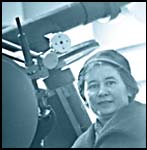



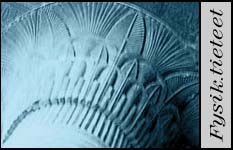
WOMEN OF LEARNING: NAME INDEX | DISCIPLINES | PERIODS | FIRSTS | THE INVISIBLE
LANDMARKS | FACTS | WOMEN'S STUDIES | FRONT PAGE

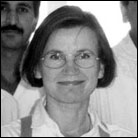 |
MARJATTA RAUTIO chemical weapons expert 1944- |
||
Professor Marjatta Rautio has for the past twenty years been actively involved in the verification of chemical disarmament and has greatly contributed to international cooperation in the field. Marjatta Rautio, who completed her doctoral dissertation on barbiturates at the Department of Pharmacy of the University of Helsinki, embarked on a whole new career when Professor Jorma K. Miettinen asked her to join the Finnish project on the verification of chemical disarmament. Gradually her work moved from the laboratory to the office and from Finland to the international forum. Today her work mostly involves international meetings pertaining to verification analysis and practical implementations of the Chemical Weapons Convention. Since 1994 Marjatta Rautio has headed the Finnish Institute for Verification of the Chemical Weapons Convention VERIFIN. Chemical weapons made headlines in connection with the war between Iraq and Iran and have remained a topical issue ever since the United Nations set up a special committee to supervise chemical disarmament in Iraq. In 1997 the global Chemical Weapons Convention came into force. In order to safeguard the credibility of the Convention, compliance is strictly monitored. Verification requires that chemical warfare agents are identified from samples obtained from weapons industry, military laboratories and other institutions. Also, environmental samples are analysed, as agents released in one location can be detected downwind hundreds of kilometres away. Finnish researchers have actively participated in the development of verification analyses. The value of the Finnish project has been in its openness: for the first time, research of this type has been done outside the military, which has opened up the possibility of developing independent and reliable testing methods. From the beginning, research results have been openly available and since 1977 the project has been publishing reports of its activities. These reports, nowadays known as the Finnish Blue Books, have established themselves internationally as the "bibles" of chemical arms control. The development of a computerised database, VERIFY, was launched in 1988. The database contains data on chemicals covered by the Chemical Weapons Convention and has been chosen as the official analytical reference database of the Organisation for the Prohibition of Chemical Weapons in the Hague. The contents of the database are developed in cooperation with scientists from around the world, for there are thousands of treaty-related chemicals. 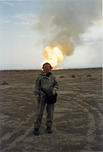 1 1
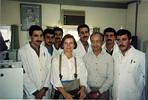 2 2
 3 3
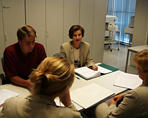 4 4
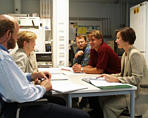 5 5
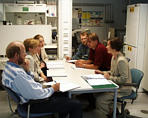 6 6
1 Marjatta Rautio, an expert in chemical weapons disarmament, participating in an UNSCOM visitation of the most important chemical weapons factory at Al Muthanna, Iraq in November 1992. The fire in the background is caused by burning of sarine. Photo: Marjatta Rautio. 2 Marjatta Rautio training iraqi chemists to make quantitative analyses of sarine at the Al Muthanna chemical weapons laboratory in 1992. Photo: Marjatta Rautio. 3 The first followup conference after the Chemical Weapons Convention came into force, Haag 1997. In front, from left: Marjatta Rautio, prof. Jorma K. Miettinen and foreign minister Tarja Halonen. Photo: Marjatta Rautio. 4-6 Marjatta Rautio at at meeting at Verifin. Photos: Martin Söderström. Read more: Rautio, Marjatta, "Finnish Institute for Verification of the Chemical Weapons Convention". In: Finland and Verification of Disarmament Agreements. Ministry for Foreign Affairs of Finland. VERIFIN home page |
|||